Congratulations, you’re qualified for the job offer. But, you would need to learn a couple of new skills to get started.
On hearing that, was your excitement of getting a new job met with discouragement of learning new skills to adapt? Or your enthusiasm was heightened with the opportunity to expand your knowledge by learning new skills?
If you took sides with the first, you’ve a fixed mindset, but, if the latter, you have a growth mindset.
Let’s face it, our type of mindset influences how we go through life—overcoming challenges or being overcome by challenges.
So, fixed mindset vs growth mindset, which do you possess?
In this guide, I’ll walk you through everything you need to know about fixed mindset vs growth mindset, including their characteristics, differences, how they influence your life and which is best.
Let’s begin.
Table of Contents
What is Mindset and Why Does it Matters?
Mindset is the pattern of thinking, attitude, beliefs and perception that influences how you interpret and respond to situations.
Also, your mindset shapes your behaviors, decision making and ability to adapt to challenges.
Additionally, your mindset today is a sum total of your exposure to knowledge through different mediums—family, friends, media, environment, workplace, books, and more.
There are two types of mindset, fixed mindset vs growth mindset. It was first identified by psychologist Carol Dweck in her book, Mindset: The New Psychology of Success.
She explains how these mindset determines how we see our abilities and intelligence—statics or subject to development.
Let’s further examine each type.
What’s a Fixed Mindset?
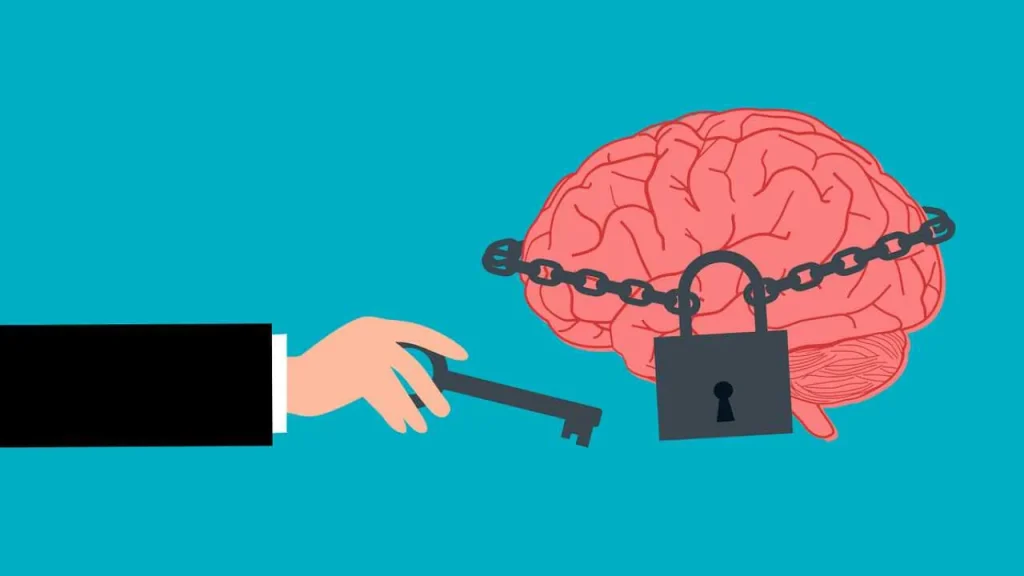
Fixed mindset is a belief pattern that talent, skills, intelligence and abilities are innate and unchanging. Individuals with a fixed mindset see the above qualities as static traits that can’t be developed.
Infact, these types of people are comfortable with whatever comes their way, unwilling to learn and sticking to the path of least resistance. They would always say, “what’s the point of learning, when I can’t be good at it”.
Those with a fixed mindset don’t achieve big dreams in life as their mindset limits their potential for growth and development.
Hence, fixed mindset vs growth mindset, which do you have? Let’s find out.
Characteristics of a fixed Mindset
Here is a litmus test to know if you have a fixed mindset:
- You’re afraid of failure and view failure as a reflection of your incompetence rather than a learning opportunity.
- You always avoid challenging tasks and stick to familiar tasks.
- You view criticism as a personal attack rather than a tool for improvement.
- You easily give up when faced with difficulties.
- You believe success depends solely on natural abilities rather than hard work or learning.
- You measure your self-worth by comparing yourself with peers.
- You’re unwilling to learn new things and resistant to new opportunities.
Examples of Fixed Mindset
Here are case studies of a fixed mindset:
- A student avoids enrolling in challenging courses because he fears low grades might make him look less capable.
- An employee resists taking on new responsibilities, believing they lack the inherent skills to excel.
- An athlete gives up after their first loss, assuming they don’t have what it takes to succeed in sports.
- An individual unwilling to invest in self development skills like time management and effective communication believing it’s a natural trait.
What’s a Growth Mindset?
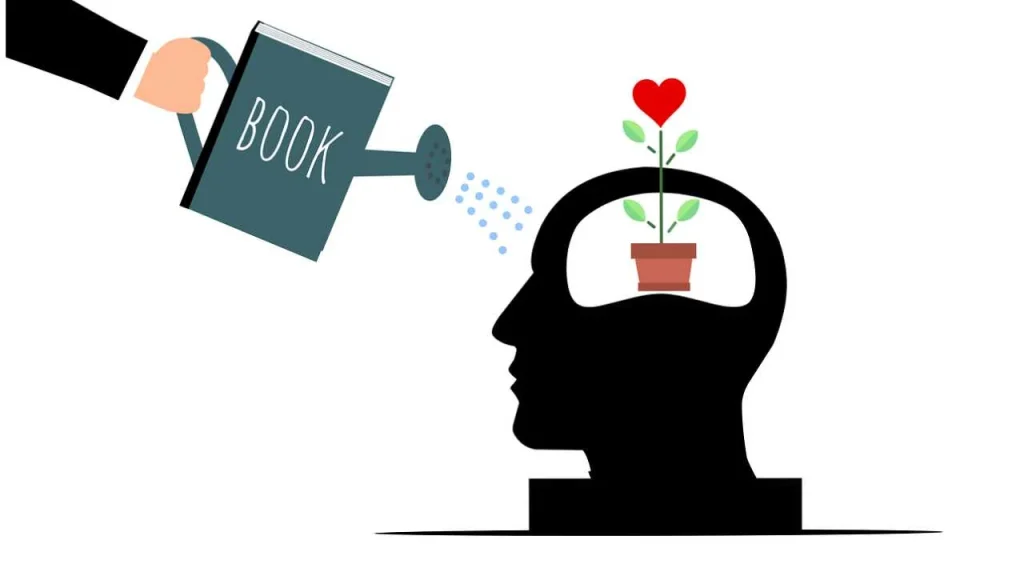
Growth mindset is a belief pattern that skills, abilities, intelligence and talent can be developed through hard work, learning, and persistence.
It’s the direct opposite of a fixed mindset. Those with a growth mindset don’t settle for less and are dedicated to continuous learning.
There were times when the task at hand appeared difficult. But, I refused to quit and summoned courage to take the bull by the horn.
Particularly, when building consistency around a productive morning routine to kick start my day.
Why?
I had chosen to cultivate a growth mindset through deliberate action like embracing feedback, affirming motivational quotes for success, and engaging in continuous learning.
Characteristics of a Growth Mindset
According to Carol Dweck, a leading researcher on motivation and mindsets, only 40% of people have a growth mindset.
When it comes to choosing between fixed mindset vs growth mindset, it is easy to claim the latter.
However, here is a litmus test to determine your stand:
- You view challenges as opportunities to grow and improve.
- You’re focused on your goal despite obstacles and setbacks.
- You welcome feedback as a means for growth and not a personal attack.
- You’re a dedicated student of personal development and continuous learning
- You believe that consistent effort leads to improvement and mastery
- Your open to learning new skills and adopting new methods
- You feel inspired by others’ achievements rather than feel threatened by them.
Examples of a Growth Mindset
Those with a growth mindset achieve greater success in life compared to those with a fixed mindset.
Here are practical examples of growth mind:
- An individual learning new skills to improve their mindset and intelligence.
- A student who struggles with math seeks additional help and practices regularly, believing he can improve.
- An employee takes on a challenging project, seeing it as an opportunity to learn new skills.
- A novice writer submits articles for feedback, knowing constructive criticism will help them improve.
What Are the Differences Between a Fixed Mindset and a Growth Mindset?
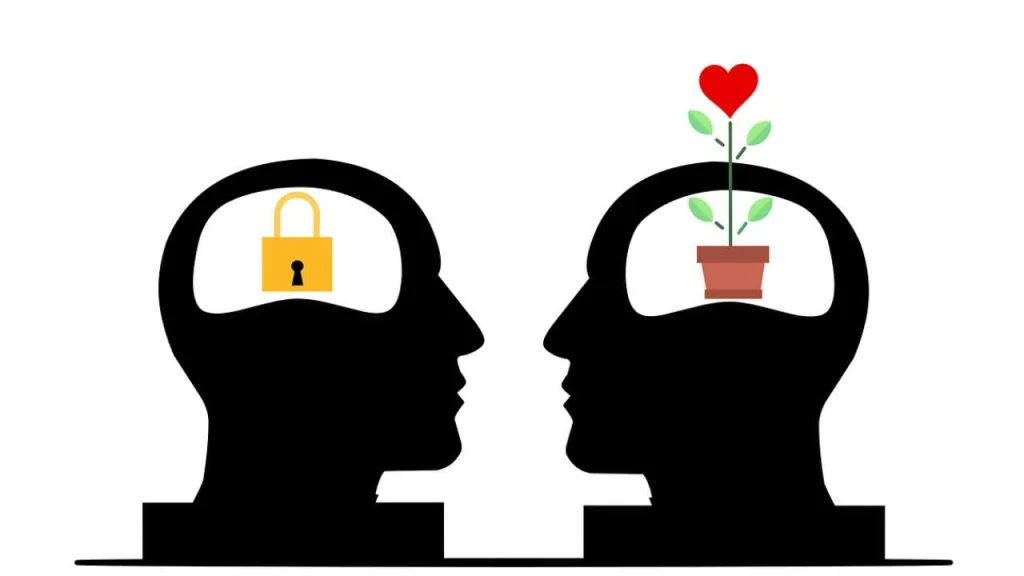
The differences between a fixed mindset vs growth mindset, lie in how individuals perceive their abilities, respond to challenges, and view the concept of success and failure.
Below is a comparison between fixed mindset vs growth mindset:
| Aspect | Fixed Mindset | Growth Mindset |
| Belief About Abilities | Intelligence and talent are innate traits and can’t be changed. | Intelligence and talent can be developed through effort, learning and perseverance. |
| View on Challenges | Avoid challenges to prevent failure or exposure of weaknesses. | Embrace challenges as opportunities for growth and learning. |
| Response to Failure | Sees failure as proof of incompetence and a reason to give up. | Views failure as a learning experience and a stepping stone to success. |
| Effort | Believes effort is pointless if natural talent is absent. | Recognizes effort as essential for improvement and achievement. |
| Response to Feedback | Views feedback as a personal threat. | Welcomes feedback as a tool for self-improvement and growth. |
| Self-Worth and Comparison | Feels threatened and discouraged by others’ success. | Feel inspired and motivated by others’ success. |
| Adaptability | Resistant to change and new approaches, preferring familiar tasks. | Open to learning new strategies and adapting to changing circumstances. |
| Focus | Focus on proving abilities and achieving immediates success. | Focuses on improving abilities and embracing the learning process over time. |
| Example | An employee fails a promotional exam and concludes he is incompetent, choosing not to try again or seek help. | The same employee seeks a tutor, practices regularly and views failure as a chance to improve their understanding. |
How to Develop a Growth Mindset
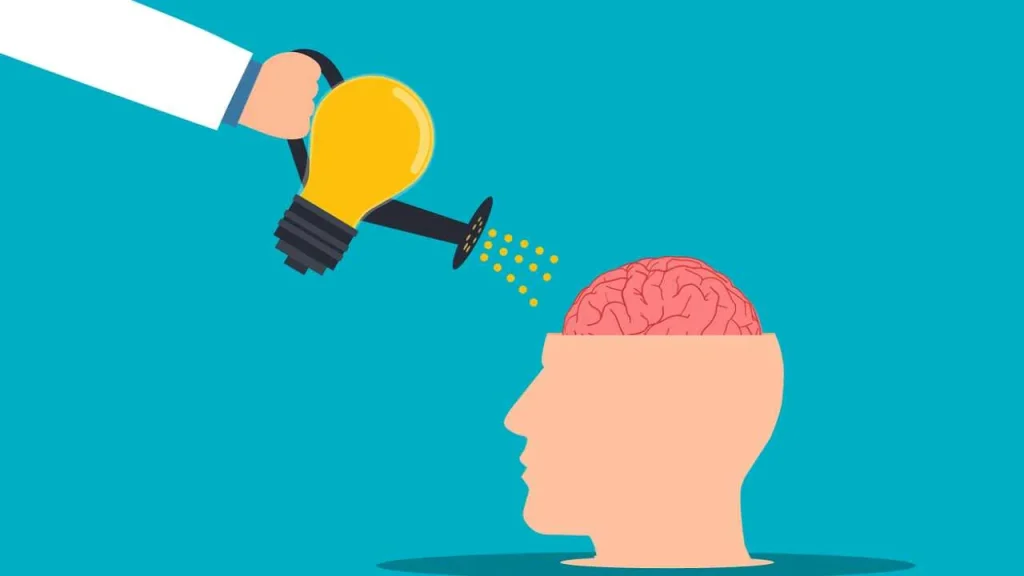
Fixed mindset vs growth mindset are two contrasting patterns of thinking with growth mindset being superior and result oriented.
That said, becoming the best version of yourself requires intentionality, hard work, and dedication to the strategies that work.
Here are practical strategies on how to develop a growth mindset:
Self Awareness
You need to become aware of your mindset type before solutions can be effective. You need to realize first that your current life results are being limited by your fixed mindset to make a shift.
Perhaps you feel satisfied in your comfort zone and have built a routine around familiar tasks, breaking free might be difficult irrespective of the applied strategies. However, the moment you realize there is more beyond the walls of our comfort zone, your freedom has begun!
Commit to Continuous Learning
A zeal for learning helps you easily embrace learning new skills and new approaches when they arise. Continuous learning brings about progressive improvement in all aspects of your life.
Learning expands your knowledge, skills and changes your perspective on how you view life.
To get started:
- Explore new hobbies
- Take online courses
- Read books
- Enroll in skill development classes
Embrace Challenges
Challenges are bound to happen even if you avoid them. So, instead of avoiding challenges, prepare to handle them.
Challenges push you to grow by forcing you to acquire new skills or refine existing ones. To handle challenges, break them into smaller, manageable steps to reduce the pressure.
Also, don’t feel inferior to ask for help when handling bigger challenges, asking for help creates room for growth rather than making you feel incompetence.
Change Your View About Failure
One key step on how to build a growth mindset is to reframe failure as learning opportunities instead of the end of the road. Viewing failure as lessons shifts focus from self-blame to self-improvement.
After a setback, analyze what went wrong and identify what you can do differently next time. For instance, if you fail a job interview, reflect on the feedback, improve your responses, and practice mock interviews to perform better in the future.
Surround Yourself With Growth Mindset People
The mindset of those around you influences your own belief and attitudes.
Hence, build relationships with people who challenge and inspire you to grow. This relationship would help handle the feeling of inferiority that comes with seeing others succeed.
Also, affirming positive energy quotes and growth mindset quotes for success would inspire and transform your mindset positively.
Seek Constructive Feedback
Feedback helps identify blind spots and areas needing improvement. Intentionally, seek feedback from mentors, peers, or coaches, and use it to refine your skills.
When you intentionally seek feedback, it becomes easy to receive unsolicited feedback and not viewing it as a personal threat.
Avoid Negative Statement
Negative statements like “I can’t do this,” “I’m a failure,” “I wasn’t born with such talent,” constantly keep you in your comfort zone. In contrast, adding “yet” reminds you that improvement is possible.
Hence, replace “I can’t do this” with “I can’t do this yet,” this shift keeps you motivated. Instead of saying, “I’m not good at public speaking,” say, “I’m no good at public speaking yet,” but don’t stop there, take actions like enrolling in public speaking classes.
Final Thoughts on Fixed Mindset vs Growth Mindset
Truth be told, life won’t give you what you deserve on a platter of gold, except you demand for it. Unfortunately having a fixed mindset will keep you in the “wishing club” for a long time except you make a shift.
A fixed mindset isn’t entirely bad in itself, but it limits your ability and potential to improve your life with every new opportunity that comes your way.
So, taking what you deserve from life requires a growth mindset which empowers you to keep moving even when the going gets tough.
Fixed mindset vs growth mindset, the ball is in your court to decide—make your dream a reality by intentionally, developing a growth mindset or keep wishing your dreams would magically become a reality by sticking to a fixed mindset.
Hence, fixed mindset vs growth mindset, which do you possess? And what steps are you taking to develop a growth mindset?
Frequently Asked Questions
How do you break a fixed mindset?
To break a fixed mindset, you need to become uncomfortable with your comfort zone and deliberately replace your fixed mindset with a growth mindset.
What are the 5 ways you can develop a growth mindset?
Developing a growth mindset requires intentionality, hard work, and dedication to the strategies that work:
1. Commit to continuous Learning: A zeal for learning helps you easily embrace learning new skills and new approaches when they arise.
2. Embrace Challenges: Let’s face it, challenges are bound to happen even if you avoid them. So, instead of avoiding challenges, prepare to handle them.
3. Change Your View About Failure: Viewing failure as lessons shifts focus from self-blame to self-improvement.
4. Surround Yourself With Growth Mindset People: The mindset of those around you influences your own belief and attitudes.
5. Seek Constructive Feedback: Feedback helps identify blind spots and areas needing improvement. Intentionally, seek feedback from mentors, peers, or coaches, and use it to refine your skills.
Is intelligence fixed or changeable?
While there are individuals who have high intelligence right from birth, it doesn’t mean intelligence can’t be improved upon.
Hence, intelligence isn’t fixed but changeable. Certain activities like exposure to knowledge, change of environment, association and diet can influence one's intelligence.
Can a fixed mindset lead to success?
Yes, a fixed mindset can lead to success when success is based upon familiar, unchallenging tasks. However, if success requires learning new skills and overcoming failure, then a fixed mindset only makes the situation worse.
I’m Happiness Hassan, the founder of Inspiring Guide—A personal development blog that empowers you to become the best version of yourself!
Meet the Author
Happiness is also an SEO content writer and strategist with over 7 years of experience helping brands boost visibility, engagement, and sales.
Whether it’s keyword research, crafting content, or fine-tuning on-page and off-page strategies, I’ve got you covered. My goal is beyond driving traffic but making your users experience a win-win for everyone!
On the coaching side, I’ve trained countless writers to turn their passion into profitable SEO careers. I help them navigate the SEO path, standing out in even the toughest niches and cashing in on their skills.
When I’m not geeking out over SEO, you’ll find me deep in the world of self-development. As a dedicated student of continuous growth, I write about my growth journey, sharing insights to help others unlock their potential. So, if you’re looking for a little push to become your best self, stick around—I’ve got you covered!

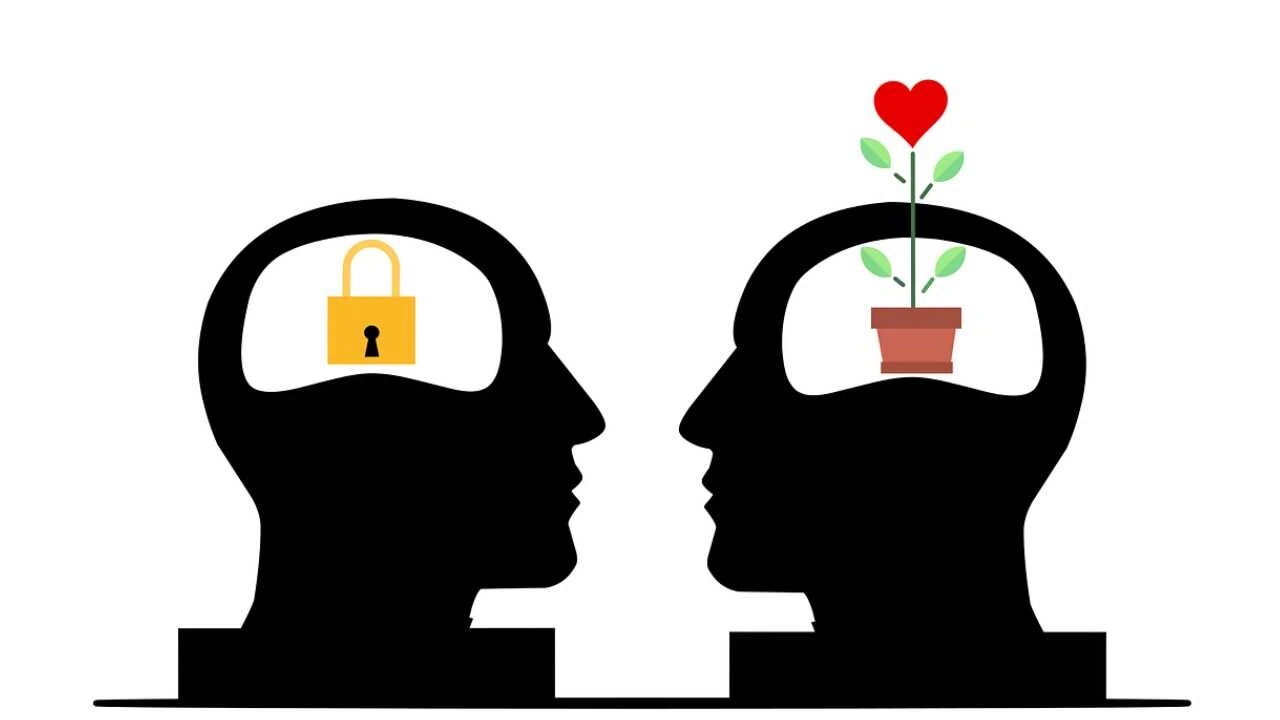




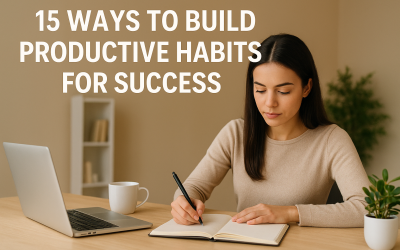

0 Comments